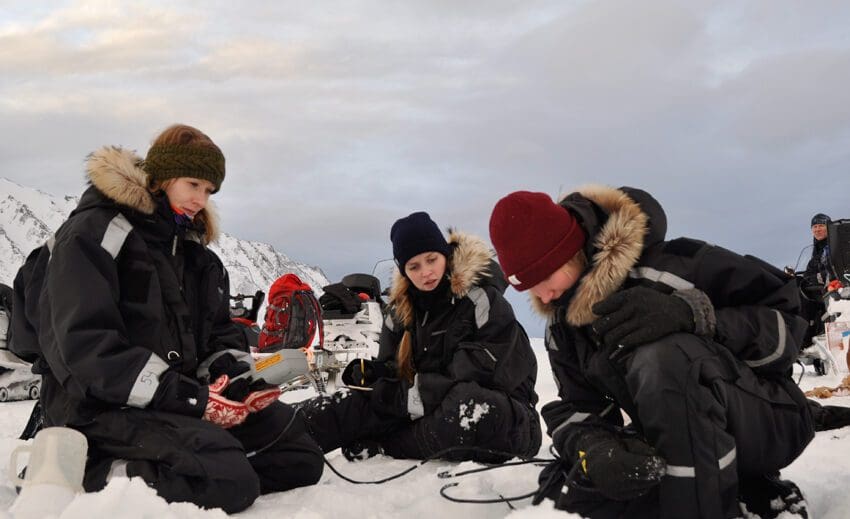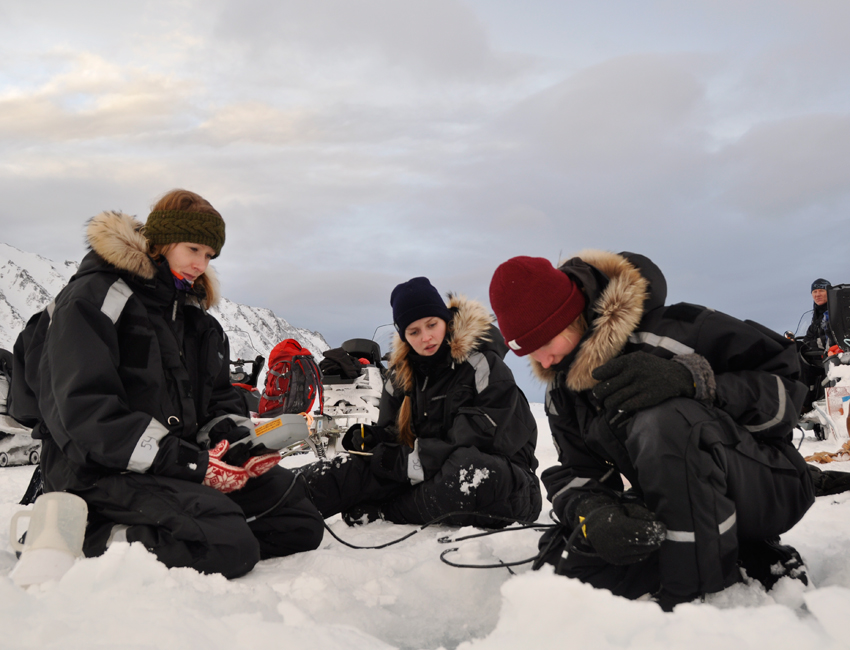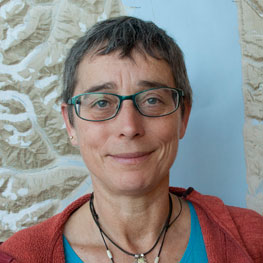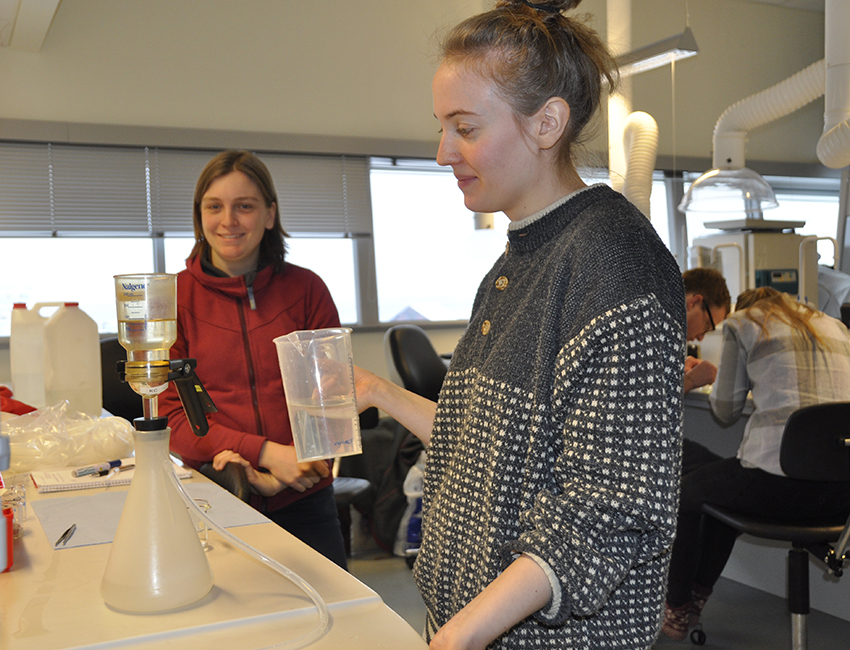AB-833 Freshwater Ecology of Arctic Lakes and Ponds (10 ECTS)
ID:
AB-833
CREDITS:
10 ECTS
APPLICATION DEADLINE:
October 15, 2023
START DATE:
February 26, 2024
END DATE:
March 26, 2024
COURSE PERIOD:
Spring semester (February 26 - week 13). Teaching block 2

AB-333/833 students performing fieldwork at Kapp Linné. Photo: Kirsten Christoffersen/UNIS.
| Grade: | Letter grade (A through F) |
| Course Cost: | None |
| Course Capacity Min/Max: | 10/20 students (AB-333/833 in total) |
| Language of instruction: | English |
| Examination support material: | Bilingual dictionary between English and mother tongue |
UNIS contact person:
Course requirements
Enrollment in a relevant PhD programme.
Academic content
The study of lakes and ponds is an interdisciplinary science subject that encompass biological, chemical, and physical conditions. This course is focusing on the biology of organisms, from microbes to fish, of Arctic lakes and ponds on a year-round perspective, which includes the very short ice-free summer period and the much longer winter period with ice-cover. Emphasis is put on understanding the winter conditions as our knowledge of this season is rather limited. During the course, we will focus on how the various abiotic factors are influencing the diversity and ecology of important organisms (phyto- and zooplankton, invertebrates and fish) within these freshwater ecosystems, their interactions, nutritional requirement and how energy flows within freshwater systems.
Based on field samplings in local lakes, we will analyse the winter conditions in ice-covered lakes, characterize the under-ice communities using different sampling techniques and compare our results with previous years and with literature values.
The course will also emphasize the potential effects of global climate and environmental change, increased bird migrations as well as human activity on freshwater ecosystems in Arctic regions.
As an integrated part of the course different type of sampling equipment will be demonstrated and used in the field. Attention on how to ensure safe conditions for person and the group when sampling during winter conditions will also apply.
Learning outcomes
Upon completing the course, the students will have:
Knowledge
- detailed knowledge into physical, chemical and biological characteristic of Arctic freshwater ecosystems during the entire annual cycle and especially during winter
- knowhow to perform in-depth analyses of how the environmental factors in the Arctic shape the biodiversity and ecological interactions in freshwater ecosystems
- advanced insight into the taxonomy, biogeography and ecology of the main autotrophic and heterotrophic organisms in ponds and lakes at Svalbard.
- expertise in designing experiments to measure growth, feeding and reproduction of plankton and benthos in Arctic freshwaters.
Skills
- thorough knowledge of common Arctic freshwater pelagic and benthic organisms as well as how to sample and analyse such communities
- experiences in methodological possibilities and limitations to run independent field sampling during challenging winter conditions and laboratory experiments
- an analytic and critical approach to deal with recent freshwater literature and other sources of information and how to use these to structure and formulate hypotheses
- a detailed overview of the entire field that allows the student to teach at a graduate level and to perform other outreach activities.
General competences
- a deep understanding of the Arctic freshwater ecosystems that matches the state-of-the-art as presented by experts
- experience in how to combine field data with empirical knowledge into a scientific publication using statistical analysis and interpretation of biodiversity data
- skills to carry out an independent research or development project in accordance with scientific norms
- experience in outreach activities of scientific matters including to master language and terminology of the academic field.
Learning activities
The course extends over ca 5 weeks including compulsory safety training and is run in combination with AB-333.
The course is based on a combination of lectures with guest teachers from several fields of limnology, various types of weekly commitments (paper presentations, exercises, discussions and essays), and laboratory work (experiments, microscopy and analyses) based on field samples. There are also scheduled hours for preparing the course report (which are part of the course assessment). The fieldwork includes several field trips to lakes near Longyearbyen as well as in Bødalen and Colesdalen to demonstrate the different types of freshwater ecosystem and to collect samples for the students to work with in the laboratory.
Summary
- Total lecture hours: 20 hours
- Total seminar hours: 12 hours
- Laboratory work: 3-5 days
- Excursions: Several 1-day excursions
Compulsory learning activities
All compulsory learning activities must be approved in order to sit the exam.
- Field excursions
- Laboratory work
- Seminars
Assessment
All assessments must be passed in order to pass the course.
Each assessment is graded, and subsequently combined into a single grade. Partial grades for each assessment will be available.
| Method |
Percentage of final grade
|
| Written report | 50 % |
| Oral exam | 50% |
Student life


